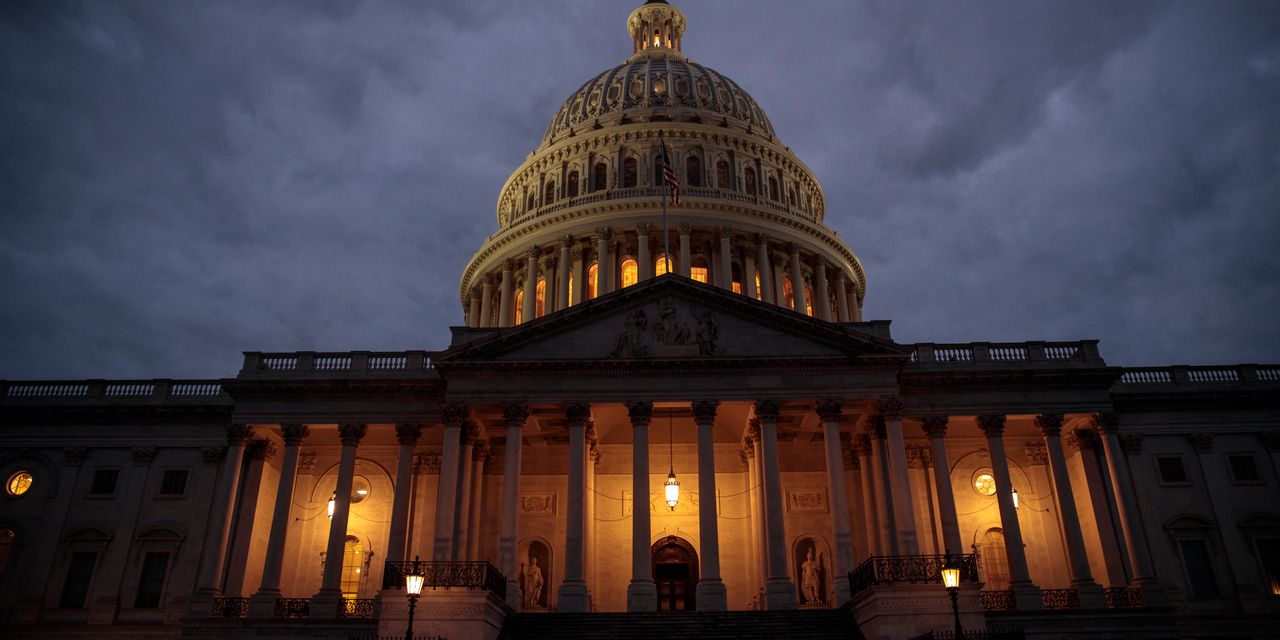
Let the debt ceiling games begin!
On Sunday, the Treasury Department will once again be limited by law from adding any new borrowing to the national debt, setting the stage for a monthslong political battle between Democrats and Republicans over what conditions should be met before Congress allows the Treasury to borrow money for programs it has already authorized.
Republicans have in recent years used this quirk in U.S. fiscal procedures to demand spending cuts from Democrats in return for voting to authorize an increase in the debt ceiling.
House Democrats can win a vote to raise the limit on a party-line vote, but Senate Minority Leader Mitch McConnell has said he “can’t imagine” any Republican in the upper chamber voting for an increase, leaving Democrats 10 votes short of the 60-vote threshold they’d need to raise the ceiling under normal Senate rules.
But these aren’t normal circumstances. Democrats are already planning to use a parliamentary tactic known as budget reconciliation, which enables them to pass budget-related legislation with a simple majority vote in the Senate, for upwards of $3.5 trillion in public works and social spending, though there is no intraparty consensus over the ultimate size and scope of the package.
Henrietta Treyz, director of economic policy at Veda Partners, believes that the grave consequences of not raising the debt ceiling — that is, defaulting on U.S. debt or other obligations — could make an agreement on the reconciliation package more likely, because no Democrat, progressive or moderate, is going to allow a U.S. default, even if that means making unpalatable compromises on the spending bill.
“If Republicans do not want to provide the votes for a debt ceiling suspension or hike, then Democrats will have to take these votes on their own anyway,” she wrote in a recent note to clients. “Ironically, any Republican opposition to a debt ceiling hike would make it more urgent and indeed required, that Democrats…hike the debt ceiling via reconciliation authority.”
Timing is an issue for Democrats if they want to combine a debt ceiling increase with their party-line spending bill, given that the Congressional Budget Office has estimated that the Treasury will run out of cash in November at the latest.
“It seems unlikely that Democrats will have resolved their internal differences regarding their $3.5 trillion budget proposal before [that time], which means they would have to hold a separate budget reconciliation vote just to raise the debt ceiling,” wrote Stephen Pavlick of Renaissance Macro Research in a Friday note to clients. Whether or not the Senate parliamentarian would allow Democrats to proceed with two seperate reconciliation votes remains to be seen, added Pavlick, who served as a Treasury official during the Trump administration.
Perhaps the likeliest path toward a debt-ceiling increase would be to include it in a vote on a continuing budget resolution that would need to be passed by September 30th in order to avoid a government shutdown.
“We don’t believe McConnell is really going to hold the full faith and credit of the United States hostage over a debt ceiling vote, nor is he likely interested in another government shutdown,” wrote analysts at Beacon Policy Advisors in a recent note.
They argued that “the final question” is what sort of face-saving measures Democrats could offer Republicans to vote for a ceiling increase, suggesting one option would be to consider bipartisan legislation introduced by Utah Republican Sen. Mitt Romney to set up bipartisan commissions to study “endangered trust funds” like Social Security.
Though such commissions rarely amount to legislation that could pass with 60 votes in the Senate, Republicans could claim a win in the direction of controlling future entitlement spending.
Equity markets typically have confidence that Congress and the White House will reach deals to avoid government shutdowns and defaults on debt. The inability for the Treasury to issue new debt, however, will likely drive up bond prices TMUBMUSD10Y, 1.236% and drive down interest rates, according to a Thursday note by Kevin Nicholson, co-head of the investment committee at RiverFront Investment Group.
Most of all Congress will want to avoid a repeat of 2011, when a debt-ceiling standoff between a Republican-controlled House and the Obama White House led to severe market volatility and S&P Global Ratings to downgrade U.S. sovereign debt. As the threat of default loomed, the S&P 500 SPX, -0.43% began tumbling, falling nearly 20% between July and October of that year.













